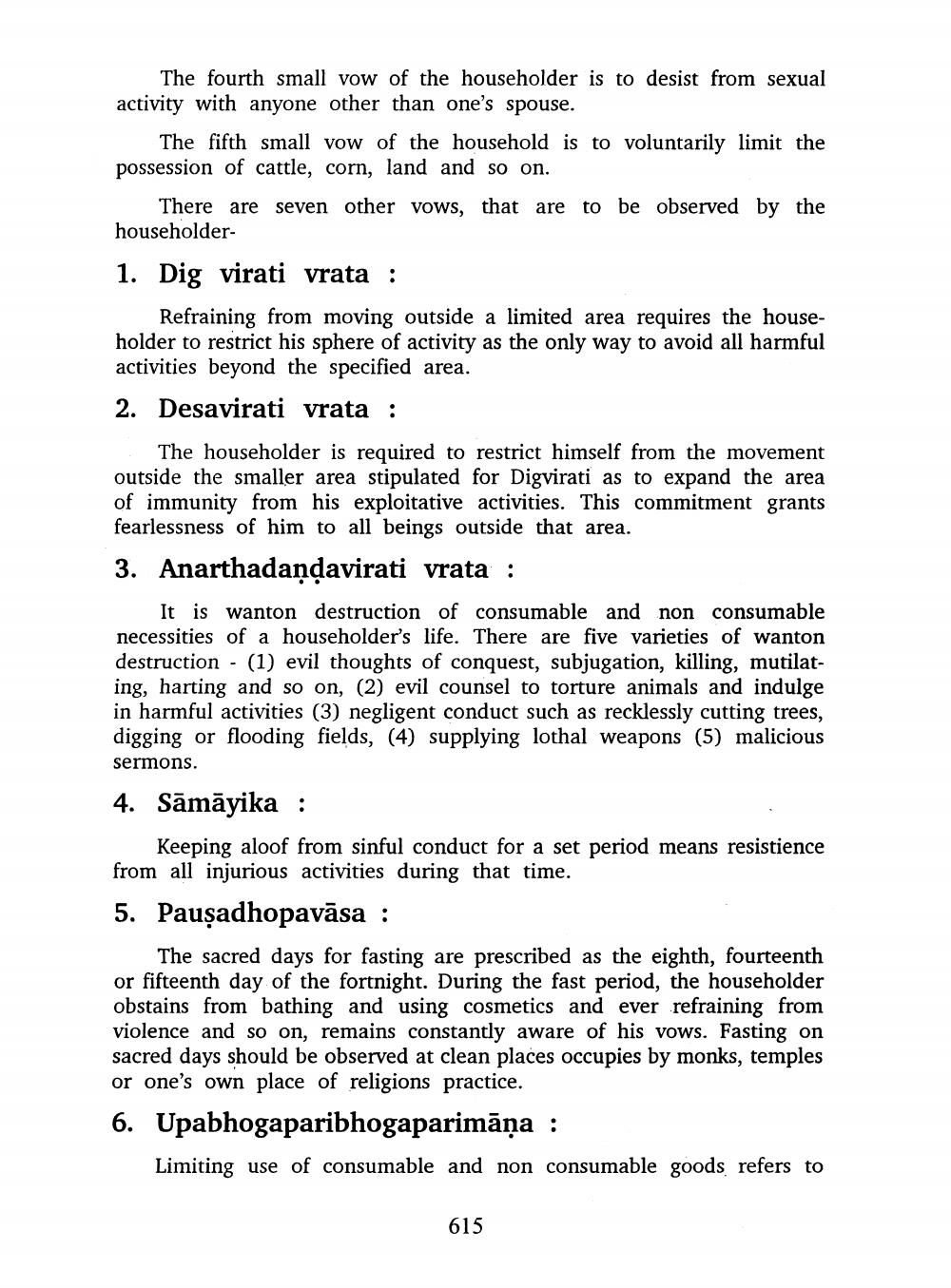________________
The fourth small vow of the householder is to desist from sexual activity with anyone other than one's spouse.
The fifth small vow of the household is to voluntarily limit the possession of cattle, corn, land and so on.
There are seven other vows, that are to be observed by the householder
1. Dig virati vrata :
Refraining from moving outside a limited area requires the householder to restrict his sphere of activity as the only way to avoid all harmful activities beyond the specified area.
2. Desavirati vrata:
The householder is required to restrict himself from the movement outside the smaller area stipulated for Digvirati as to expand the area of immunity from his exploitative activities. This commitment grants fearlessness of him to all beings outside that area.
3. Anarthadaṇḍavirati vrata:
It is wanton destruction of consumable and non consumable necessities of a householder's life. There are five varieties of wanton destruction - (1) evil thoughts of conquest, subjugation, killing, mutilating, harting and so on, (2) evil counsel to torture animals and indulge in harmful activities (3) negligent conduct such as recklessly cutting trees, digging or flooding fields, (4) supplying lothal weapons (5) malicious
sermons.
4. Sāmāyika :
Keeping aloof from sinful conduct for a set period means resistience from all injurious activities during that time.
5. Pausadhopavāsa:
The sacred days for fasting are prescribed as the eighth, fourteenth or fifteenth day of the fortnight. During the fast period, the householder obstains from bathing and using cosmetics and ever refraining from violence and so on, remains constantly aware of his vows. Fasting on sacred days should be observed at clean places occupies by monks, temples or one's own place of religions practice.
6. Upabhogaparibhogaparimāņa :
Limiting use of consumable and non consumable goods refers to
615




